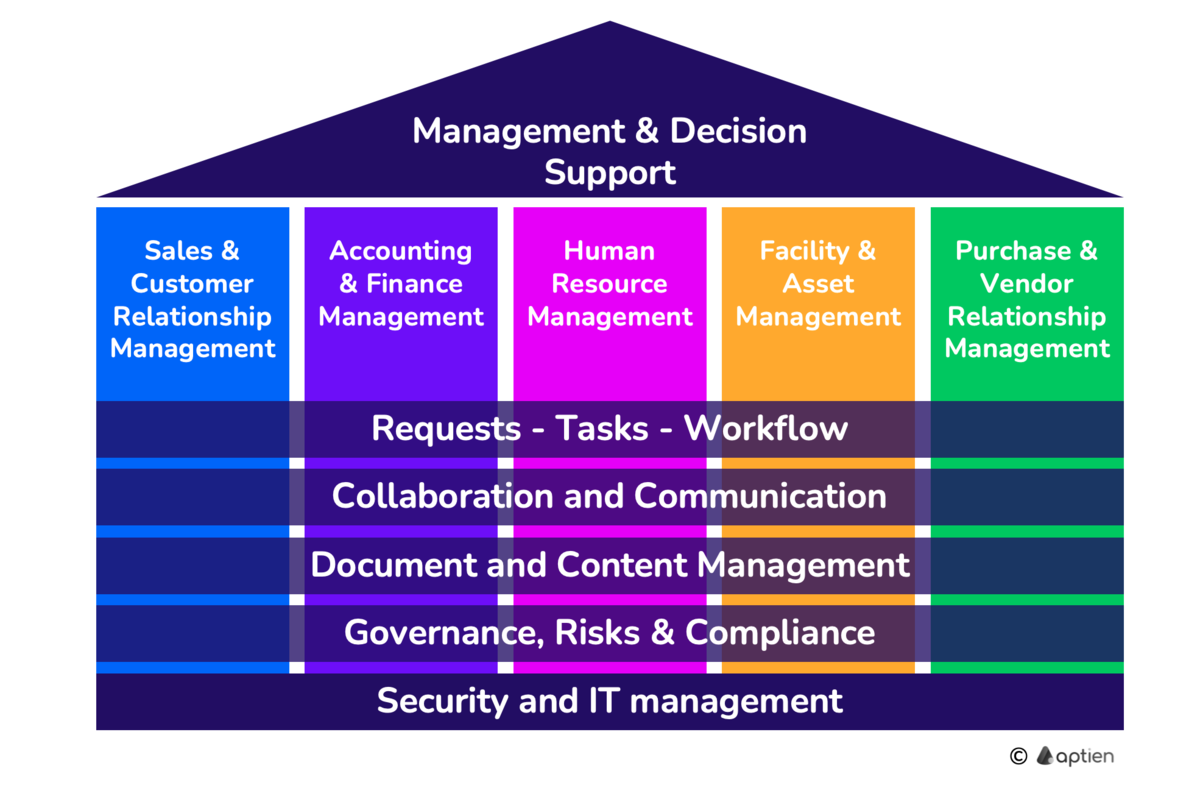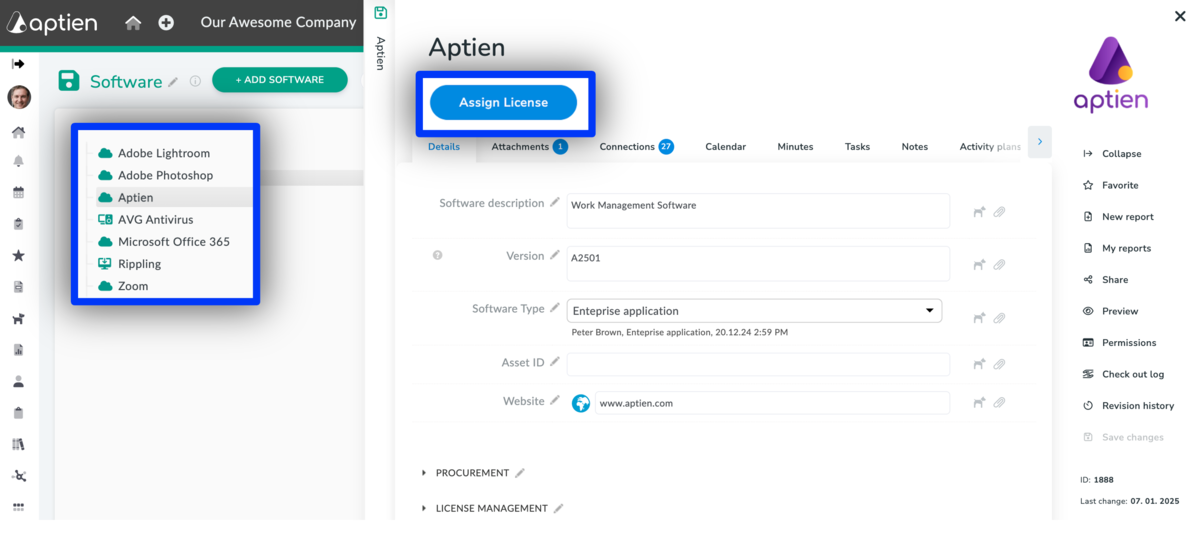This article is intended for IT managers and cybersecurity managers
Definition of Enterprise Software
Enterprise software (sometimes also referred to as information systems or business applications) is any software designed to support business processes, i.e., the operation of an organization. Enterprise software is an essential part of everyday activities and processes, critical operations, such as financial management, customer relationship management, or employee information management. Business software enables the processing of data and documents, integration with other systems, and the provision of information for decision-making.
Basic Types and Categories of Enterprise Software
- Accounting software
- Customer Relationship Management (CRM) software, systems for sales or customer communication
- Enterprise Resource Planning (ERP) software, comprehensive systems for managing, planning, and controlling resources
- Human Resources software (HR, HCM, HRIS, HRMS)
- Project management software
- Task management software
- Work planning and management software
- Supply Chain Management (SCM) software
- Data analytics and Business Intelligence (BI) software
- Marketing automation software
- Content Management Systems (CMS)
- Attendance tracking software
- Collaboration and communication software, Groupware
- Inventory management software
- E-commerce software
- Help Desk software
- Intranet software
- IT management software
- Learning Management Systems (LMS)
- Production management software
- Procurement software
- Risk management software
- Security software
- Service Desk software
- Vendor and supply chain management software (VRM, Vendor Management Software)
- Warehouse Management Software
And many other categories and types of enterprise software
What Enterprise Software Does Every Small or Medium-Sized Business Need?
Every organization uses several business applications that are more or less interconnected or integrated.
In general, it can be any software or application that facilitates collaboration and provides information to people. This includes physical binders with papers, but primarily individual applications that typically fall into the following areas. The following list will give you an idea of what constitutes enterprise software.
The type of enterprise software an organization uses depends on its business sector. No organization can function without enterprise software and must have at least:
Essential Enterprise Software Every Organization Must Have
- Accounting software for financial processing
- Payroll software for payroll processing and HR management
- Email or similar systems for basic communication
- Software for customer support, sales, and business operations
- Software to support company operations, work management, and task organization
What Does Enterprise Software Look Like?
- Enterprise software is usually a specific application used by multiple users
- Many small and medium-sized businesses also use Excel or spreadsheets for certain functions and processes
How do organizations run enterprise software?
Organizations run and deploy enterprise software either on-premise or using cloud services.
Enterprise software operated on-premises
- Enterprise software runs on company servers
- Typically, it operates within the company's internal network (LAN).
- Organizations need specialists to manage servers and ensure the smooth operation of business applications.
Enterprise software in the cloud
- Enterprise software runs on the provider's servers.
- The organization uses the applications without needing its own specialists.
- The cloud provider handles all operational aspects.
- Company then focus on user experience and functionality.
How to Manage and Track Enterprise Software and Licenses Used in a Company
As an IT manager, you gain control over the enterprise software and licenses used. Take advantage of the prepared enterprise software organizer, to manage all enterprise software and licences which you can customize according to your needs:
- To record all enterprise software and licenses used across the company
- Get an easy overview of who is using which software and where it is installed
- Keep track of valid enterprise software licenses
- Manage assigned licenses to the users (employees)

